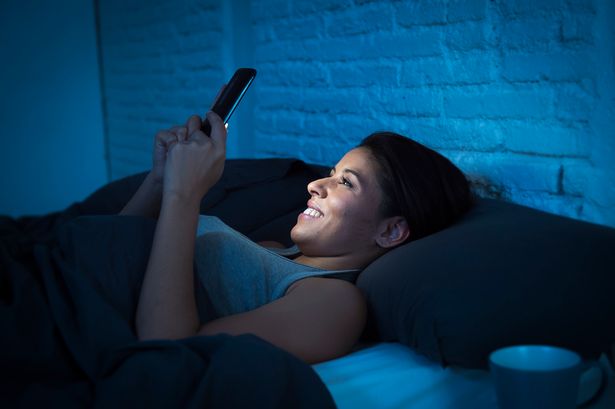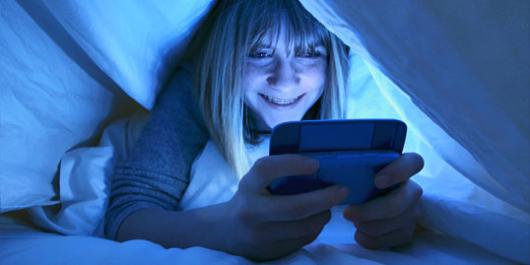Look up “blue light” online and you’ll find an overwhelming array of articles explaining why it’s bad for you. Not only does it disrupt sleep by throwing the body’s biological clock off balance, it could potentially cause severe, irreversible vision loss from macular degeneration and also diseases in the long run. The question is does the light from your devices affect the skin too?
What is blue light?
All colours of light have various effects, but blue wavelengths, which are advantageous during daylight as they boost attention, cognitive function and mood as well as help us control our body’s circadian rhythm for our natural sleep-wake cycle, are the most disruptive at night.
Sometimes called blue-violet or violet light, blue light is a high-energy, short-wavelength light that is most commonly emitted through electronics with screens.

So, what does blue light do to the skin?
Blue light-fighting skincare products are becoming increasingly prominent and readily available in the market, but does blue light really damage the skin or is it just another marketing gimmick? Well, the fact of the matter is that there is mounting evidence attesting that blue light contributes to photo-ageing, which consists of hyperpigmentation and wrinkles.
A study in 2010 published in the Journal of Investigative Dermatology found that blue light from the sun causes more pigment, redness and swelling than when the same person was exposed to similar levels of UVA rays. This was only observed in people with darker skin tones, however the pigmentation also lasted longer.
Another study in Oxidative Medicine and Cellular Longevity also has proven that exposure to blue light may stimulate the production of free radicals, thus accelerating the signs of ageing. Blue light penetrates the skin, generates reactive oxygen species and then damages DNA, thereby causing multiple skin issues.
In conclusion, the more time you spend on your devices, the worse off your skin may be. What’s more interesting is that dermatologists believe that there is a pattern of hyperpigmentation that may be the result of holding a mobile phone to the face and it makes sense. Dark spots are always worse on the sides of the face than they are on the front.

Do blue light-fighting products actually work?
Many of us spend a considerable amount of time in our daily lives in front of screens and it’s probably wise to incorporate blue light-fighting products into your skincare routine. This is even more necessary for those who have sun-sensitive skin disorders like lupus or rosacea.
Also, sunscreens generally only protect the skin against ultraviolet A and B rays, which doesn’t include blue light rays. However, certain ones do contain ingredients that specifically help to protect the skin from blue light damage. Look for ingredients like red algae, iron oxide and also antioxidants in your products.
Additionally, lower the brightness level on your screens and of course, go hands-free every time you can! A digital detox is always good for the soul, after all.










